When it comes to addressing issues with your living situation, a formal complaint to your tenant association is often necessary. It can feel daunting, but putting your thoughts down in a clear and concise letter can pave the way for resolution. In this article, we'll guide you through the essential components of a well-structured complaint letter, helping you express your concerns effectively while maintaining a respectful tone. Join us as we explore how to ensure your voice is heard and your rights are protected!
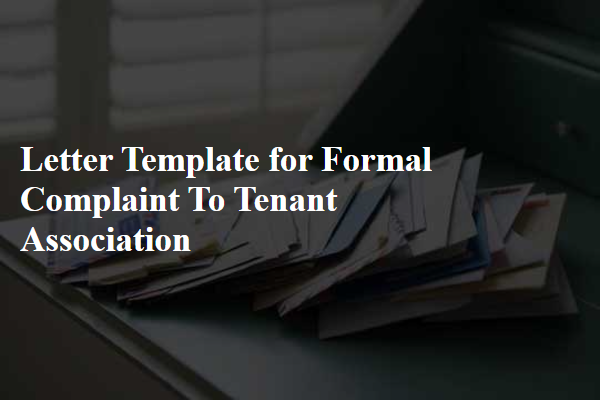
Clear identification of involved parties and contact information.
The formal complaint submitted to the tenant association, located at 123 Housing Lane, Springfield, involves parties including myself, John Doe, residing at Apartment 456, Springfield Condominiums, and the property management company, ABC Realty, whose contact information is 789 Property Avenue, Springfield. The issues warranting this complaint include persistent maintenance delays and noise disturbances originating from neighbors. The requested resolution seeks immediate attention to maintenance concerns previously reported on July 15, 2023, and the implementation of noise regulations to ensure a peaceful living environment. The contact information for follow-up includes my phone number at (555) 123-4567 and email address johndoe@email.com.
Specific details of the complaint, including dates and incidents.
The persistent issue of noise disturbances has been affecting the peaceful enjoyment of my residence at Maplewood Apartments, particularly during late-night hours. Documented incidents occurred on July 15 and August 3, 2023, where the loud music and shouting from unit 204 disrupted my sleep, leading to considerable distress. Furthermore, on September 10, 2023, numerous complaints were made to the management regarding similar disturbances, yet no corrective measures were taken. This ongoing situation has prompted my need to formally address the tenant association to seek resolution, ensuring adherence to community guidelines and a return to a tranquil living environment for all residents in this well-regarded complex.
Reference to relevant association rules or lease agreements.
Formal complaints to tenant associations often arise from violations of association rules or lease agreements. These rules may cover issues such as noise levels, maintenance responsibilities, or shared space usage. Lease agreements detail obligations of both landlords and tenants, typically including clauses related to property upkeep, rent payment timelines, and dispute resolution procedures. For instance, residents might reference Section 3.5 of the tenant handbook, which explicitly prohibits excessive noise during designated quiet hours between 10 PM and 7 AM. A well-documented complaint can outline specific incidents, dates, and any prior communication regarding the issue to strengthen the case for resolution by the association board.
Request for a specific resolution or action.
The issue of inadequate heating in residential buildings can significantly affect tenant comfort, particularly during winter months. Reports from various tenants indicate that temperatures often drop below 18 degrees Celsius, creating an uncomfortable living environment. The heating system, particularly in locations such as the Maplewood Apartments, appears to be malfunctioning, leading to increased complaints. Insufficient heat can exacerbate health conditions, leading to potential disputes involving tenant rights and building management. Immediate action, such as professional inspections or repairs by certified technicians, should be prioritized to ensure compliance with housing standards outlined in local regulations. This resolution is crucial for maintaining tenant satisfaction and overall living conditions.
Professional and respectful tone throughout the letter.
A formal complaint regarding tenant issues should clearly articulate specific concerns, using a respectful tone and providing detailed context. Key details such as the nature of the complaint, address, dates of occurrence, and desired resolutions are critical for effective communication. Clarity in presenting facts fosters better understanding and a constructive response from the tenant association. Each concern should be distinct, with emphasis on how it affects both the tenant's experience and the overall community environment. Prompt acknowledgment of the complaint by the tenant association is essential for fostering trust and collaboration among tenants.
Letter Template For Formal Complaint To Tenant Association Samples
Letter template of formal complaint to tenant association regarding noise disturbances.
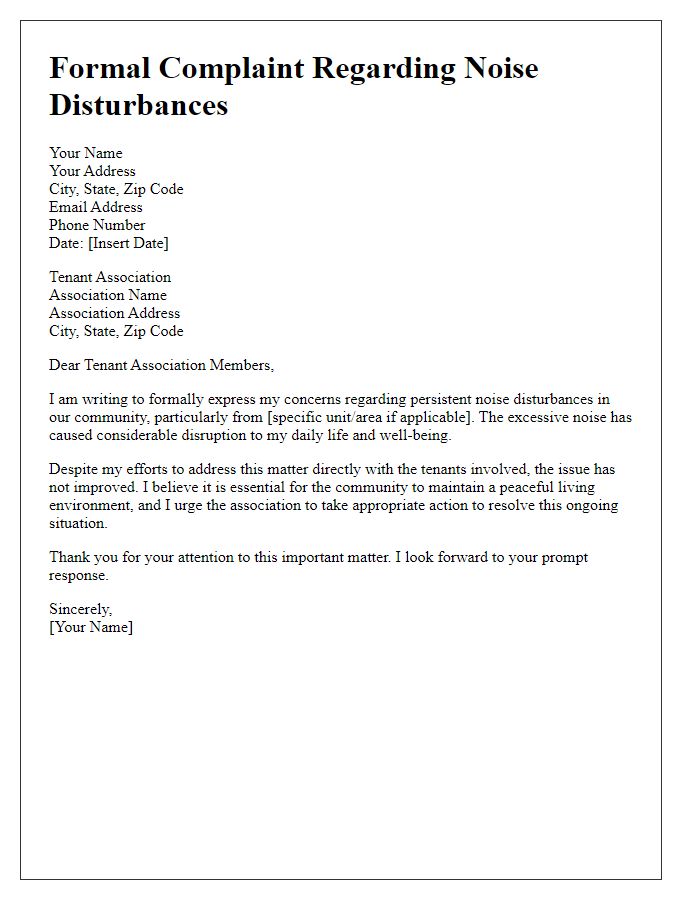
Letter template of formal complaint to tenant association about maintenance issues.
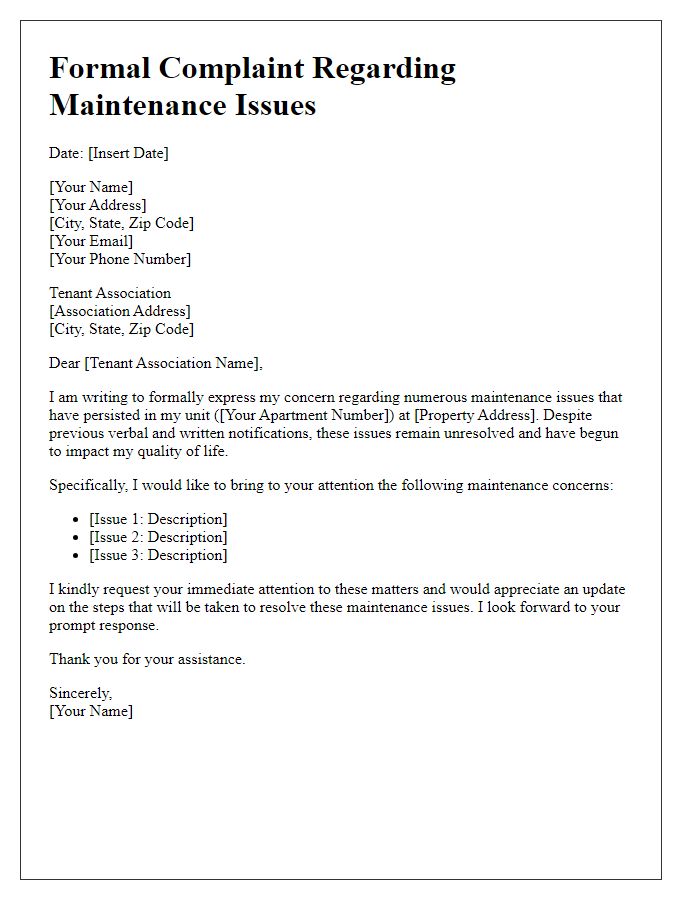
Letter template of formal complaint to tenant association concerning illegal subletting.
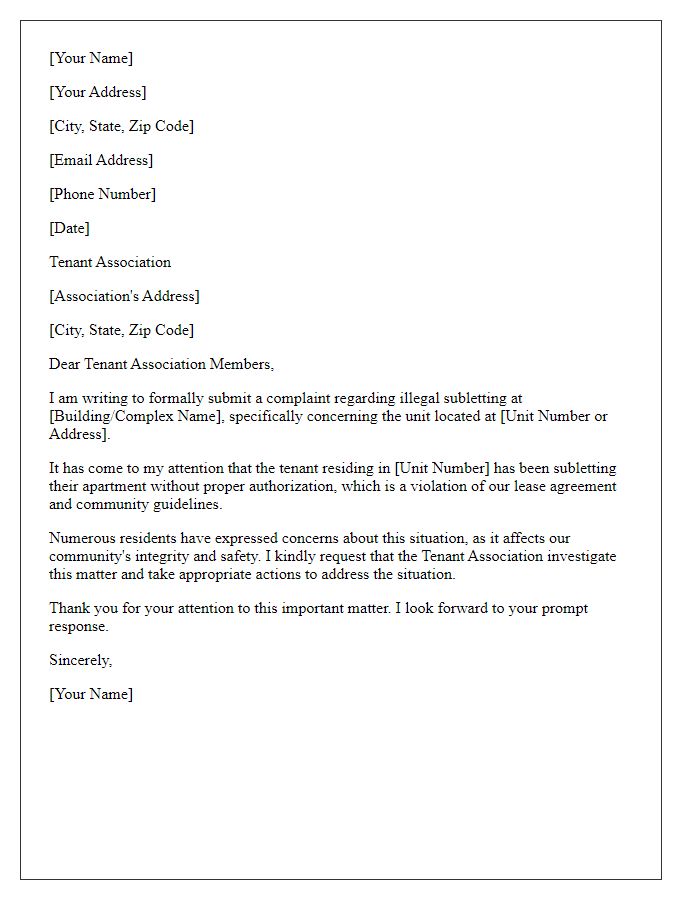
Letter template of formal complaint to tenant association regarding safety concerns.
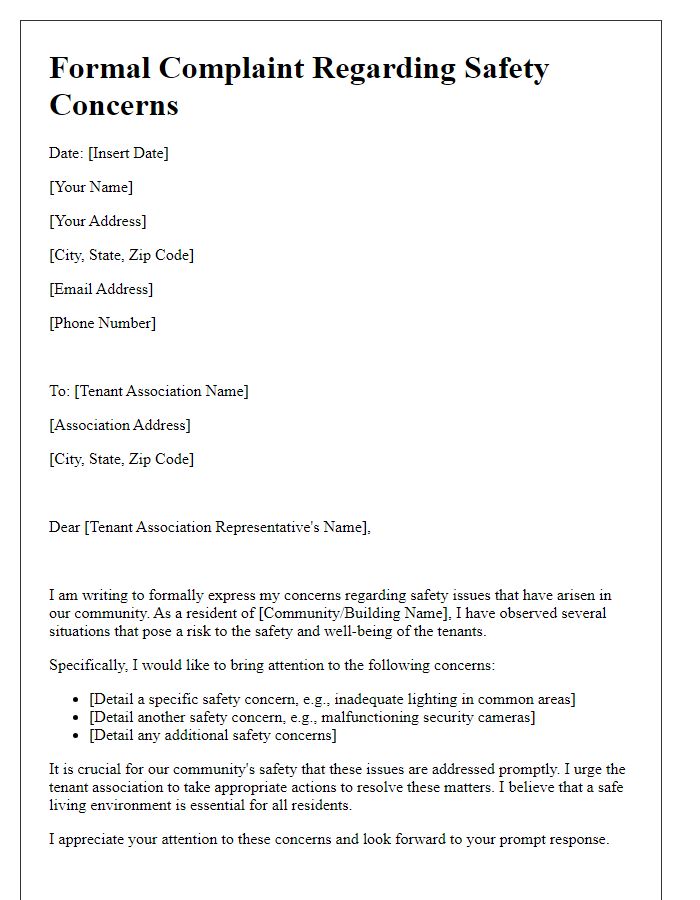
Letter template of formal complaint to tenant association on rental agreement violations.
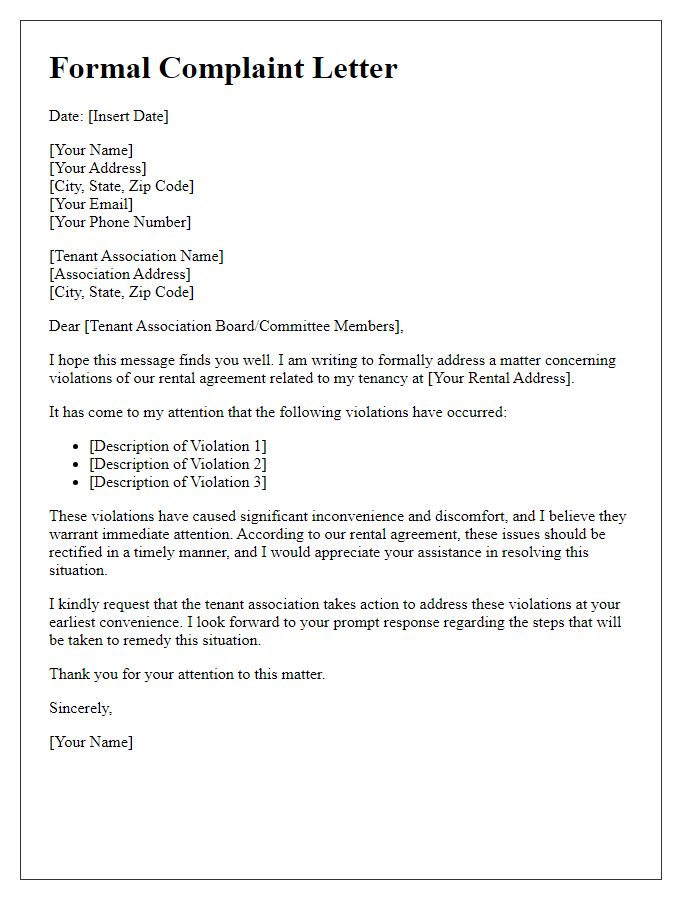
Letter template of formal complaint to tenant association about tenant behavior.
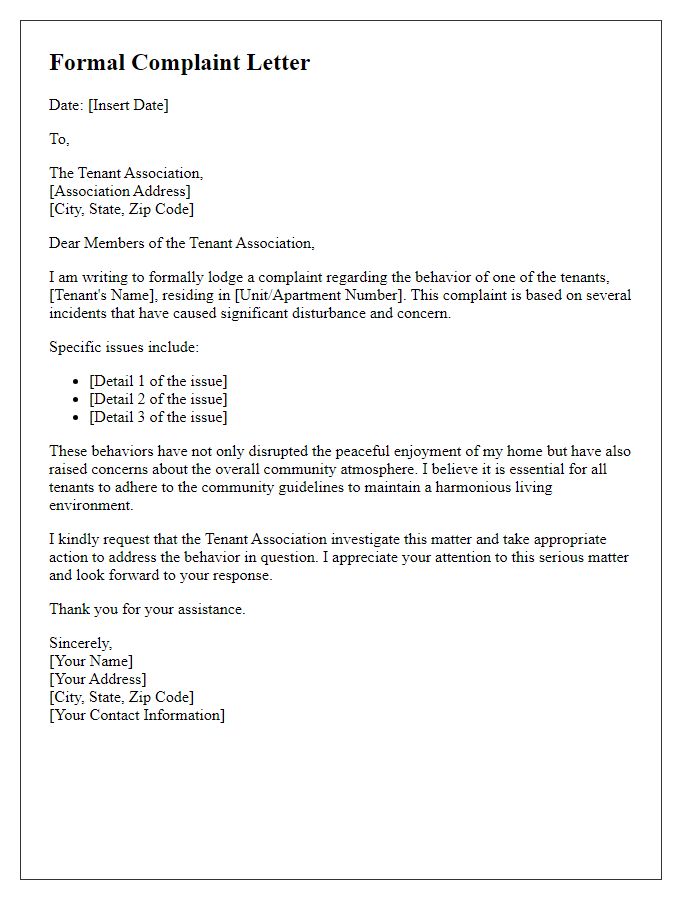
Letter template of formal complaint to tenant association regarding unapproved alterations.
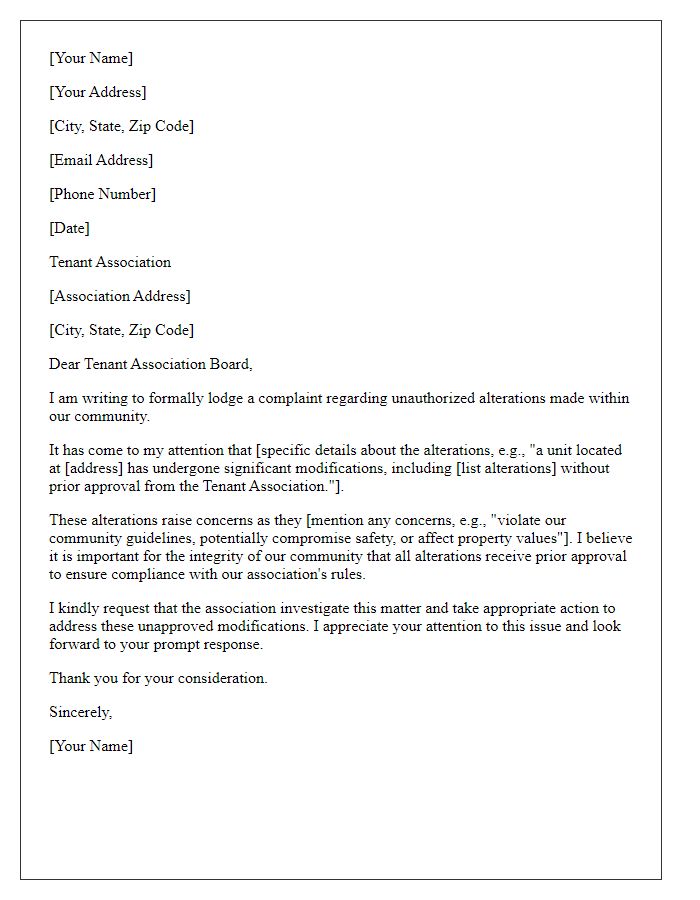
Letter template of formal complaint to tenant association about inadequate heating/cooling.
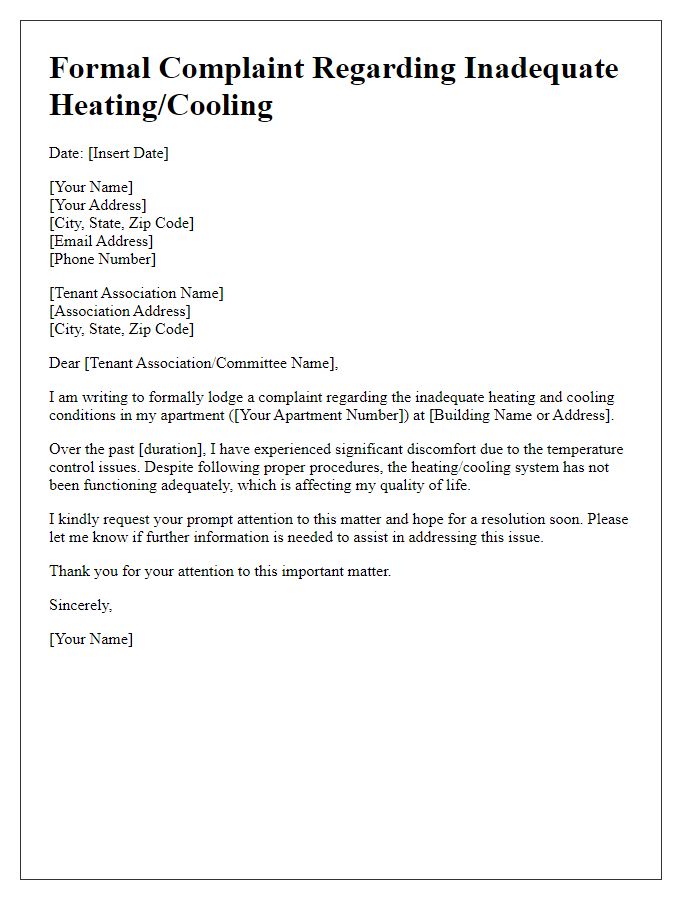
Letter template of formal complaint to tenant association concerning pest infestations.
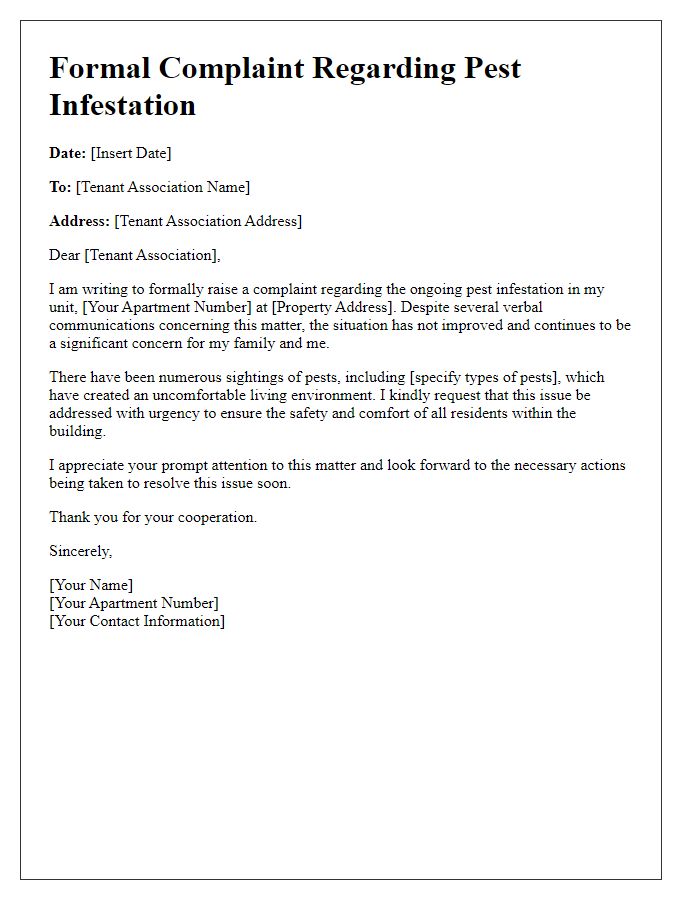

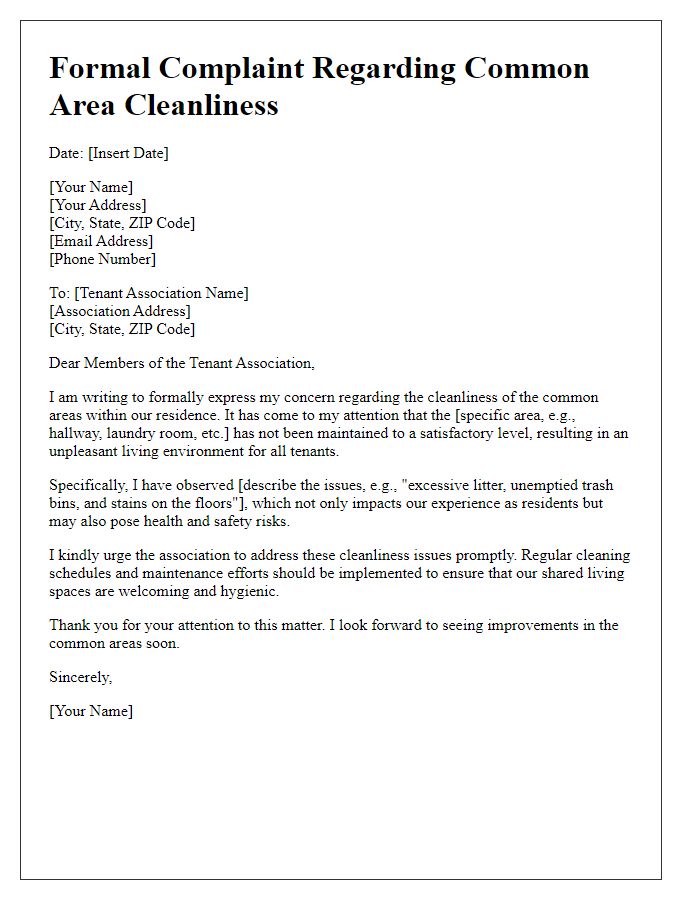


Comments